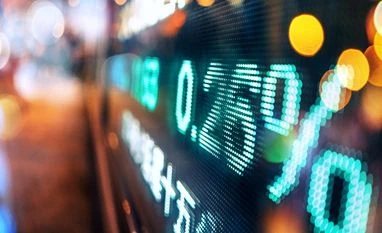Traders were back on Russia sanctions watch on Tuesday with oil, inflation-sensitive bond yields and stocks all edging higher ahead of an expected new measures from the West in coming days.
Europe saw the STOXX 600 index nudge 0.3% higher as oil, industrial, tech and insurance stocks all made ground, while the euro clawed back a sliver of the 1.8% it had lost against the dollar in recent days. [.EU][/FRX]
With investors waiting on the new batch of sanctions - most likely on Wednesday according to France's European Affairs Minister - oil was up 1%, lifting benchmark German Bund and U.S. Treasury bond yields due to the prospect of higher global inflation.
Ewan Markson-Brown, a fund manager at CRUX Asset Management, said the global economy's path was now highly dependent on how the war in Ukraine progresses, and how policymakers in the U.S. and China manage the respective economic challenges.
"I think we have had the main (sanctions) crunch already. The variable will be if Germany stops taking Russian gas," Markson-Brown said. "That is something that would definitely take the European markets down."
In Asia, MSCI's broadest index of Asia-Pacific shares outside Japan advanced 0.3% to 602.2. China and Hong Kong markets were closed for a holiday, but it was the strongest level since Russia sent its troops into Ukraine on Feb. 24.
Japan's Nikkei also closed up 2%, the S&P/ASX 200 index rose 0.2% in Australia, while South Korean stocks added 0.1%.
Also Read
AUSSIE DOLLAR
In the currency markets, the Australian dollar had jumped to a nine-month high of $0.7612 after its central bank signalled higher interest rates were closer.
"Geopolitical shocks historically did not tend to dominate the markets for long," global markets strategists at JPMorgan said in a note, adding that U.S. rate hike cycles didn't tend to hurt stock markets much either, "at least not in the early stages".
S&P 500 stock futures barely budged and Nasdaq futures slipped 0.05% after Wall Street climbed on Monday, supported by tech shares.
The euro was steady at $1.0967 after dropping for the last three sessions.
The prospect of a Russian sovereign debt default was back in play too, after U.S. authorities prevented banks there from processing Moscow's latest government bond payment, after weeks have allowing them to do so.
Global markets were otherwise looking to Wednesday's release of minutes from the Federal Reserve's last policy meeting for hints on how much the U.S. central bank will raise interest rates next month. The ECB will publish its equivalent minutes on Thursday.
The potential for more sanctions meant oil prices resumed their rise in commodity markets, along with signs that Iran nuclear talks had stalled.
Brent crude futures gained 1.7% to $109.35 a barrel. U.S. West Texas Intermediate futures rose 1.6%. Copper was up 0.7%, though gold slipped 0.2% to $1,928.7 per ounce.
"The base case is that we enter a period of stagflation, but it is short lived," CRUX's Markson-Brown said, referring to the phenomenon where inflation soars but growth grinds to a halt.
(Only the headline and picture of this report may have been reworked by the Business Standard staff; the rest of the content is auto-generated from a syndicated feed.)
)